Cross-Strait exchange helps youths from Taiwan region better appreciate nation’s strides, shared heritage
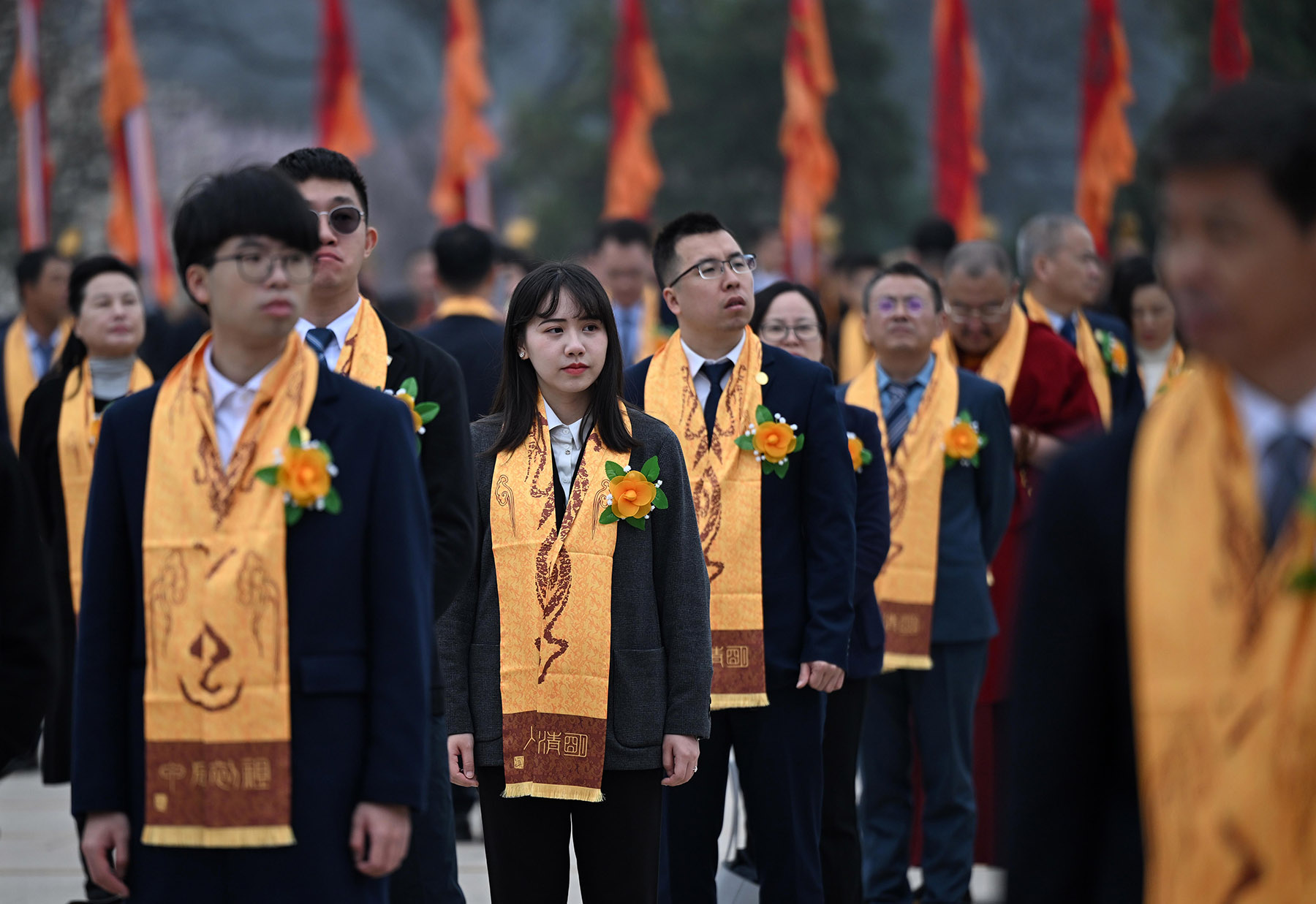
In recent years, there has been a popular phrase circulating among young Chinese: “Whose DNA has been stirred up?” — which means being emotionally moved by something that one has been deeply affected by in the past.
Earlier this month, I felt my “DNA” being stirred when I heard 20 students from Taiwan singing the theme song of a movie at Sun Yat-sen University in Guangzhou, Guangdong province.
Led by former chairman of the Chinese Kuomintang party Ma Ying-jeou, the students were on an 11-day visit to the mainland, taking in Guangdong and Shaanxi provinces and Beijing, and visiting high-tech companies as well as historical and cultural sites.
The Taiwan-made movie, You Are the Apple of My Eye, is a love story of regret set at a university. After its release on the mainland in 2012, it became one of the most popular Taiwan films, along with its theme song.
More than a decade later, I witnessed 20 Taiwan youths singing the theme song, Those Years, on stage during a fellowship activity at Sun Yat-sen University. Even though I was a journalist appointed to cover Ma’s visit, I could not help but sing along softly.
During the fellowship activity, young people from the mainland and Taiwan also gave various performances including piano recitals and singing popular songs. They also exchanged gifts, with the Taiwan youths receiving annual membership cards for the video streaming website iQiyi.
The heartwarming and harmonious scenes involving the young people from across the Strait were even enough to make some observers forget about the unprecedented tension in recent years. Ma said in his speech at the university that his second mainland visit was aimed at promoting cross-Strait student exchanges, which he emphasized was the “most important purpose of his trip and the goal I have striven for”.
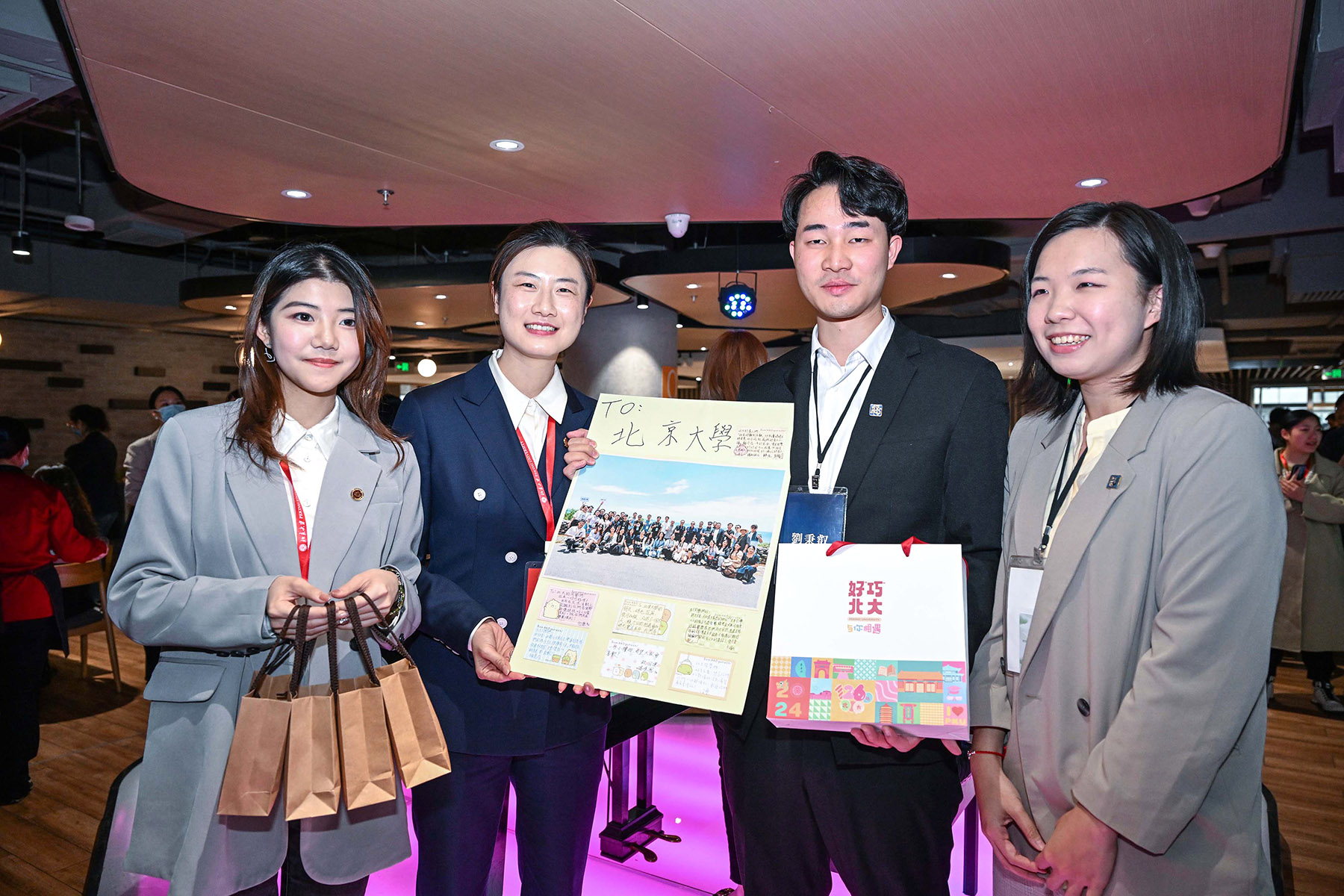
He pointed out that the students, due to their common language and similar ages, interacted warmly with each other.
Peking University was the destination for the second youth exchange event during Ma’s visit, where Taiwan youths met with a group of their mainland counterparts who had visited Taiwan in July last year.
After the event at Peking University, the youths from the mainland and Taiwan went to the student canteen for dinner.
There, Peking University student Wu Jiayi and Taiwan youth Liao Shin-hua played piano pieces including Dao Xiang, or Fragrant Rice, and performed a joint piano rendition of the traditional Chinese song Jasmine Flower.
Taiwan singer Jay Chou wrote Dao Xiang for people affected by the devastating Wenchuan earthquake in 2008. Tragically, several days before the Peking University exchange, a magnitude 7.3 earthquake struck Hualien in Taiwan, killing 10 people and injuring more than a thousand.
It was clear that the Taiwan youths understood they had the sympathy of their mainland counterparts who expressed their concern for people in Taiwan.
At about 10 pm the night before the joint piano performance, I saw Wu in the lobby of the China World Hotel where Ma and the Taiwan youths were staying. I was touched when I realized that she had traveled to downtown Beijing to rehearse the duet with Liao.
Liu Ping-jui, the head of the Taiwan youth group, said the cross-Strait youth exchange had gone smoothly because of the shared language and culture, which allowed discussions on various topics such as history, culture, cuisine, and learning.
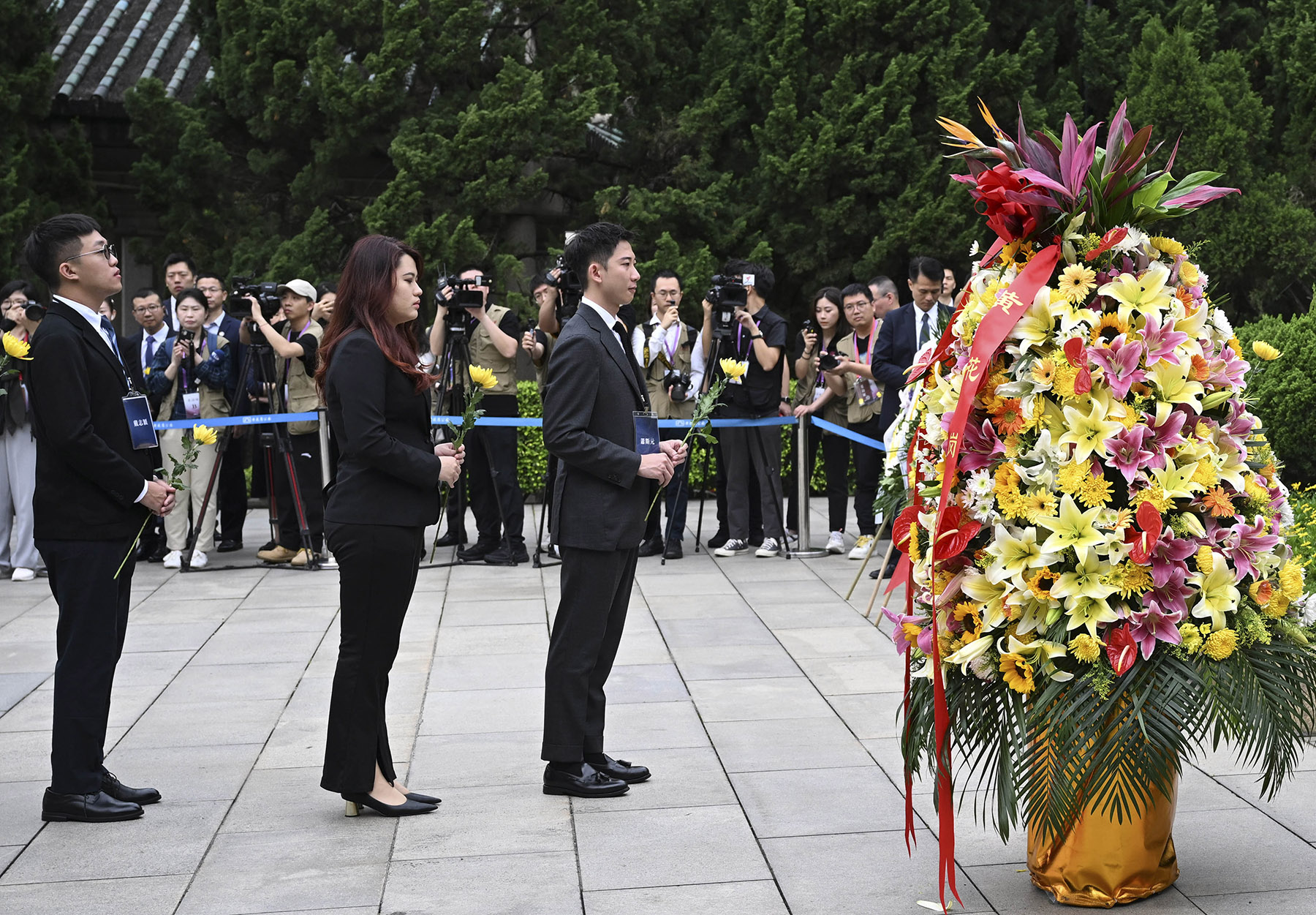
Ma and the Taiwan youths stayed for three days in Guangdong province, the forefront of China’s reform and opening-up, and visited high-profile technology companies, including the internet giant Tencent, China’s largest electric vehicle manufacturer BYD, and drone manufacturer DJI.
At BYD’s exhibition hall, Ma had a chance to inspect the company’s most advanced technology and products. He posed many questions to BYD executives about the development of electric vehicles on the mainland.
The Taiwan youths took selfies in front of different types of new energy concept car models, with some half-jokingly declaring they wanted “to drive one home”.
A visit to the Hong Kong-Zhuhai-Macao Bridge also appeared to leave the Taiwan students in awe. At the exchange event at Sun Yat-sen University, two Taiwan youths said in their speeches that they were impressed by the expanse, the world’s longest cross-sea bridge.
Tang Yi-xiang from the Taiwan Ocean University, said of the highlights: “I was most interested in the world’s most spectacular cross-sea bridge because my major is river and ocean engineering.”
“The bridge not only shortens the distance between the three places but is also a great showcase of the mainland’s engineering technology to the world,” Tang added.
The Taiwan students not only got a chance to witness advanced transportation infrastructure on the mainland but also to travel on it and gain an understanding of the vast distances it covers. During their high-speed rail trip from Xi’an, Shaanxi, to Beijing, I heard some of the Taiwan students remarking on how big the mainland is. “It’s been more than four hours and we still haven’t arrived,” one declared.
Even on the world’s fastest high-speed rail, it takes an entire afternoon to travel from Xi’an to Beijing, a fact that the Taiwan visitors were beginning to grasp.
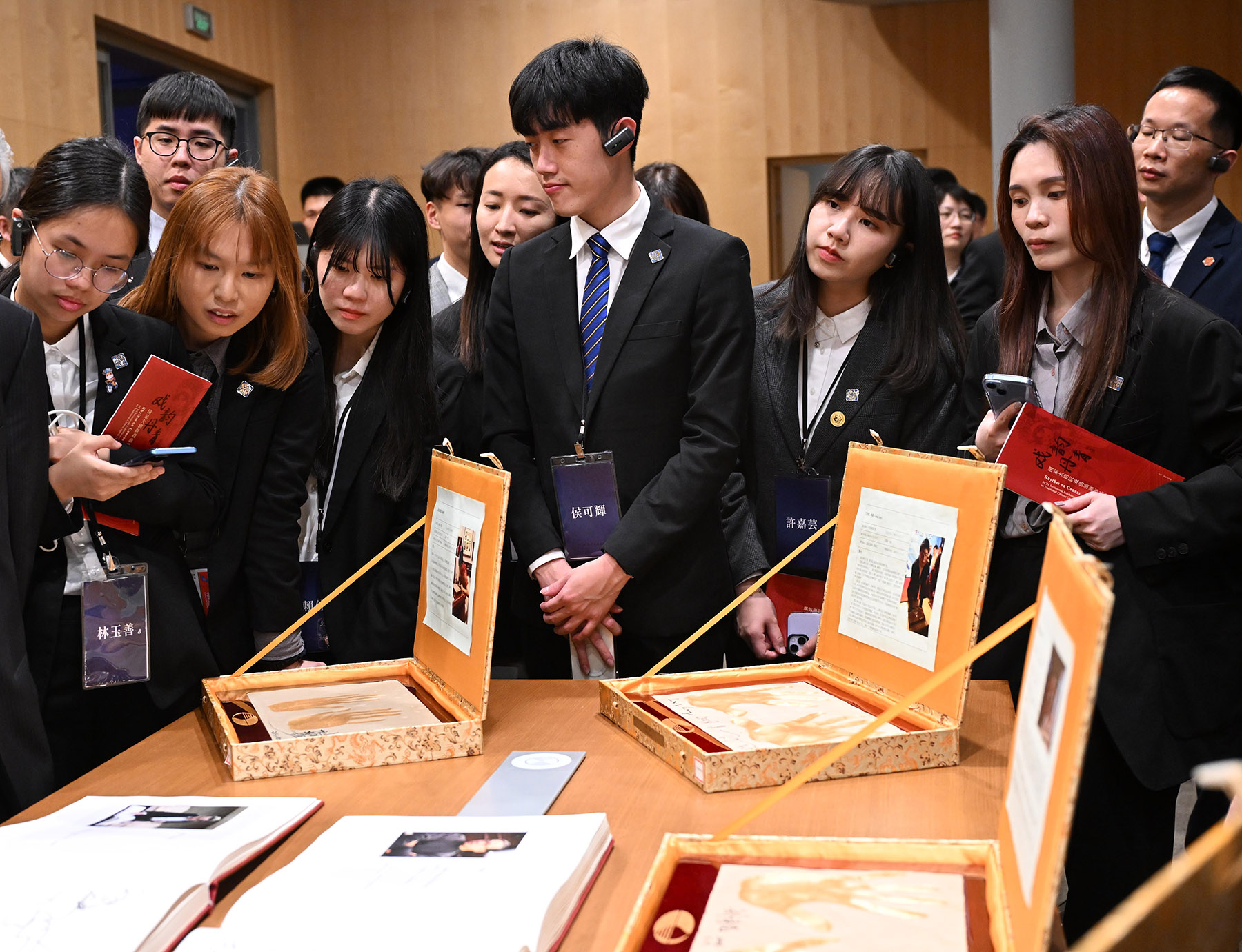
Their firsthand exposure to two capitals — the ancient one and the current one — gave them the opportunity to better understand the unique culture and history of the Chinese nation.
In Shaanxi, which is rich in Chinese historical sites, Ma and the Taiwan youths participated in a worship ceremony for Emperor Huangdi, or the Yellow Emperor, and visited the Terracotta Warriors and Shaanxi History Museum.
The Taiwan students were awestruck when they saw the Terracotta Warriors for themselves.
One of the students, Wan Yu-ming, said: “It’s much bigger than I have imagined. I have only seen it in textbooks before, but now I’m here in person, and it’s really impressive”.
“We have seen these elegant and solemn collections, and experienced the 5,000-year civilization of Chinese culture firsthand. We are all very delighted,” Ma said at the end of the Shaanxi visit.
The young people from Taiwan accompanying him all felt that they had gained a lot, he added.
“They have seen the long history of Chinese culture in Shaanxi, and it will definitely have a very profound impact on their future lives,” Ma said.
Taiwan youth group leader Liu Ping-jui said the Terracotta Warriors helped him visualize the strength of the Qin army 2,000 years ago. “As descendants of Emperor Yandi and Emperor Huangdi, seeing these things, we are deeply moved, and grateful that our ancestors left behind this wisdom, and passed down such a good culture to us.”
At Sun Yat-sen’s former residence in Zhongshan, Guangdong, the Taiwan youths took turns snapping photos in front of the building, and expressed their respect for this pioneer of the Chinese revolution.
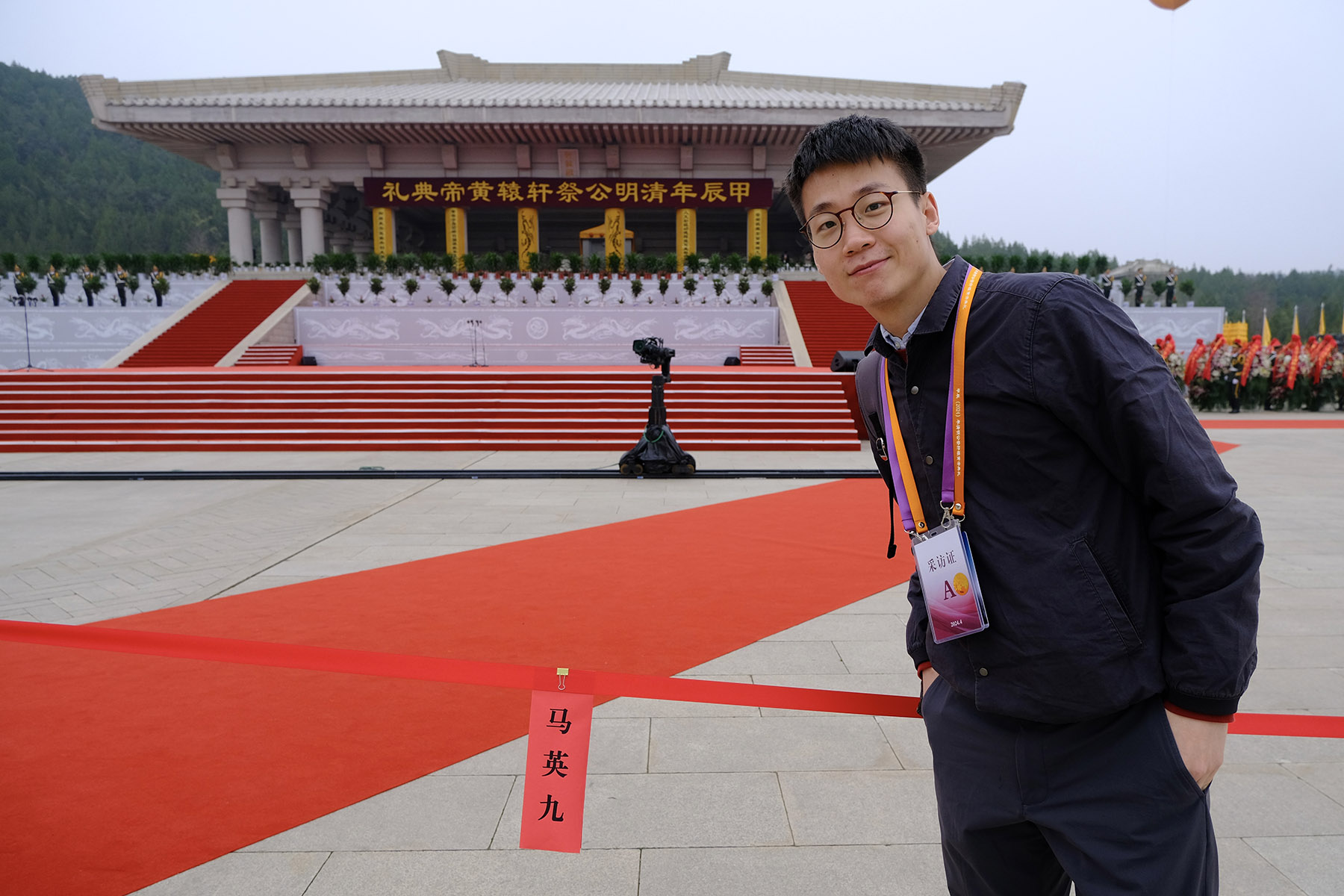
On the Lugou Bridge in Beijing, 20 Taiwan youths and Ma listened to 93-year-old Zheng Fulai, a witness of the Lugou Bridge Incident in 1937, who recounted the cruelty inflicted during the War of Chinese People’s Resistance Against Japanese Aggression (1931-45).
Su Wei-en, one of the Taiwan youths, said the visit to the bridge made him feel “excited, yet sad”, and as if he had “touched history”. His grandparents were from the mainland, and his great-grandfather was a captain during the war.
“I felt as if the stories my grandparents told were unfolding before my eyes,” he said.
On April 10, Xi Jinping, general secretary of the Communist Party of China Central Committee, met the delegation at the Great Hall of the People in Beijing. He emphasized that youths are the hope of the country and the future of the nation.
These young people, after traveling across the mainland and witnessing the economic development and the history and culture created by the Chinese nation, appeared to have a deeper understanding when they listened to Xi’s speech.
Hsiao Sy-yuan, a member of the Taiwan youth group, said he watched the historic first meeting between Xi and Ma on TV in 2015, He said he felt “excited beyond words” to participate in their second meeting as a member of the visiting group.
Through the youth exchanges, he saw the commonalities between young people on both sides of the Strait in areas such as history, food, and popular culture.
“Of course, we need to interact with each other frequently because it’s a key point for young people on both sides of the Strait to have more understanding, and empathy, and learn from each other in the future,” Hsiao said.


